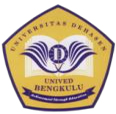An Analysis of Speech Act Used By Three Governors In Mata Najwa Talk Show In Episode Kita Bisa Apa: 3 Gubernur Ditantang Tiktok, Siapa Paling Jago?
Abstract
Abstract
Speech act is an action performed or conveyed by means of speech. The aims of this research is to analyze speech act used by three governors of Indonesia in the Mata Najwa Talk Show Episode “Kita Bisa Apa” Tiga Gubernur Ditantang Tiktok, Siapa Paling Jago?”. This research has two objectives : first, to analyze speech act used by three governors of Indonesia in the Mata Najwa Talk Show Episode “Kita Bisa Apa” Tiga Gubernur Ditantang Tiktok, Siapa Paling Jago?”, and to analyze the function of speech act used by three governors of Indonesia in the Mata Najwa Talk Show Episode “Kita Bisa Apa” Tiga Gubernur Ditantang Tiktok, Siapa Paling Jago?”. This research employed a descriptive qualitative method. The description of the data is in the form of utterances and examined based on Austin theories of speech act. Based on the obtained result, it can be concluded that the three governors, Ganjar Pranowo, Anies Baswedan, and Ridwan Kamil applied three types of speech act (locutionary act, illocutionary act, perlocutionary act). Ganjar Pranowo and Anies Baswedan mostly used locutionary act, while Ridwan Kamil used illocutionary act the most. The least used speech act by three governors was perlocutionary act. While three of them did not employ commissive and declarative function, they only used representative, directive, and expressive function of speech act.
Keyword: Speech Act, Three Indonesian Governors, Mata Najwa, Function of Speech Act.
Downloads
Copyright (c) 2022 Rifta Meilia, Dhanu Ario Putra, Merry Rullyanti

This work is licensed under a Creative Commons Attribution-NonCommercial-NoDerivatives 4.0 International License.








